
Choosing the right china fabric manufacturers can make or break your business. The top fabric manufacturers in china stand out for their massive production power, strong export reach, and advanced technology. Some factories produce over 10 billion meters of fabric each year, while china itself supplies more than half of the world’s textiles.
In this guide, you’ll discover the top 16 fabric manufacturers in China known for their quality, scale, and reliability. We break down each company’s pros and cons with key products, so you can source smarter and avoid costly mistakes.
Best China Fabric Manufacturers: A Quick Glance
Here’s a side-by-side comparison of top 16 china fabric factories to help you quickly match your sourcing needs:
| Company Name | Key Products | Pros | Cons | Location |
|---|---|---|---|---|
| Weiqiao Pioneering Group | Cotton, denim, synthetic blends, home textiles | Massive scale, integrated chain, competitive pricing, innovation | High MOQs, slower lead times, less bespoke flexibility | Binzhou, Shandong |
| Ruyi Technology Group | Wool, cotton, spandex, performance fibers | Vertical integration, R&D, global brands, technical fiber ownership | Lower margins, complex structure | Jining, Shandong |
| Sunshine Group | Superfine wool fabrics, yarns, apparel | Massive capacity, full vertical integration, strong brand/export | Limited cotton/synthetic presence, less small-lot flexibility | Jiangyin, Jiangsu |
| Sun Hing Industries Holding Ltd. | Lace, embroidered knits, warp/weft | One-stop service, eco dyeing, vertical integration | Niche specialization, mid-size scale | Longyan, Fujian |
| Hengli Group | Polyester yarns, technical fabrics, eco‑packaging | Supply chain integration, material security, R&D, sustainability | Niche industrial focus, complex corp spanning sectors | Suzhou, Jiangsu |
| Lu Thai Textile Co., Ltd. | Combed yarns, shirt fabrics, digital print | Premium quality, vertical integration, strong R&D | Shirting focus limits diversification, moderate financial returns | Zibo, Shandong |
| Texhong Textile Group | Cotton yarns, greige/fabric, garments | Vertical integration, international operations | Cotton focus limits diversification, slower holding structure | Hongkong & Shanghai |
| Shenghong Group | Polyester fibers/fabrics, chemical fiber | Raw material control, sustainability, large scale | Industrial focus, complex structure | Suzhou, Jiangsu |
| Xinlan Textile Co., Ltd. | Denim, fleece, dresswear, home décor | Product diversity, fast delivery, good QC | Moderate scale, less global brand visibility | Lanxi, Zhejiang |
| Kailong Textile Co., Ltd. | Interlinings, shell fabrics, accessories | Low MOQ, customization, global network | Smaller scale, accessory-only scope | Beijing & Suzhou |
| Youshun Textile Co., Ltd. | 2-way/4-way stretch fabrics, knits | High-performance stretch, modern looms, own R&D | Narrow focus, smaller scale | Suzhou, Jiangsu |
| Baite Textile Co., Ltd. | Camouflage, workwear blended fabrics | Military-grade specialties, competitive, flexible sampling | Very niche focus, MOQ constraints | Shaoxing, Zhejiang |
| F&A Textile Co., Ltd. | Quilting, apparel, home décor fabrics | Ultra low MOQ, vertical integration, certifications | Craft/apparel focus, smaller scale, higher unit cost | Qingdao, Shandong |
| Shenda Co., Ltd. | Auto interiors, membranes, soft decor | Vertical integration, automotive OEM supply, diversified portfolio | Industrial niche, listing complexity | Putuo, Shanghai |
| Taihua New Material Co., Ltd. | Nylon filament/fabrics, technical textiles | R&D, sustainability, large capacity | Nylon focus only, potentially high price | Jiaxing, Zhejiang |
| Jianye Textile Group | Knit/woven for women, prints, patterns | Advanced tech, export reach, reliable delivery | Fashion focus, medium scale | Guangzhou, Guangdong |
1. Weiqiao Pioneering Group — Global giant in cotton‐based textiles

Shandong Weiqiao Pioneering Group is a world‑leading vertically integrated textile powerhouse (and parent of China Hongqiao in aluminium) ranked in the 2021 Fortune Global 500, known for its massive cotton spinning, weaving, dyeing and finishing capabilities.
Key Products
Cotton yarns and greige/finished fabrics (poplin, twill, sateen, sheeting)
Denim (regular, slub, stretch; 4.5–14.5 oz)
Synthetic blends (poly-cotton, stretch fabrics)
Home textiles (towels, bedding)
Innovative plant-based antibacterial “fungus grass” fabric
Pros
Massive large production capability: ~1,500 tons of yarn per day and 1.2 billion meters of fabric per year
Integrated supply chain from spinning to finished textile products
Competitive pricing due to scale and efficient manufacturing
Strong R&D focus on sustainable, high-quality fabrics and digitalization
Holds GRS certification and recognized as a national green factory
Cons
High minimum order quantities may not suit small buyers
Noticeable lead times because of large-scale manufacturing
Less flexibility for ultra-niche or highly customized textile fabric manufacturing
Tip: Weiqiao is known for its global cotton yarn leadership and sustainable, high-quality production across advanced facilities.
2. Ruyi Technology Group — Leader in fully integrated fibers-to-fashion chains
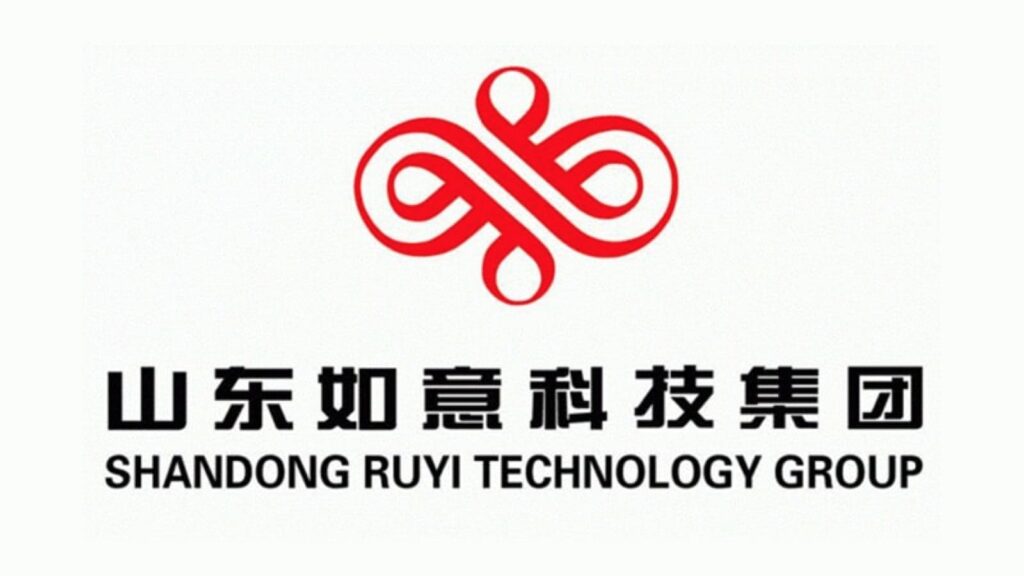
Shandong Ruyi Technology Group, founded in 1972 in Jining, has grown into China’s largest textile manufacturer, overseeing the full chain from raw materials to high-end apparel, and owns luxury and performance fiber assets like Lycra®.
Key Products
Wool & cotton yarns and fabrics
High-end fabrics using specialty fibers like LYCRA®, COOLMAX®, and THERMOLITE®
Finished textiles for suits, outerwear, and luxury apparel
Bio-based and spandex fibers for eco-friendly fashion brands
In-house apparel brands, including Aquascutum and Renown Inc.
Pros
Vertically integrated—from raw fiber to retail
Ownership of global brands and technical fiber assets adds market differentiation
Strong R&D and acquisitions (e.g., Lycra) support innovation
Global footprint with production and retail in multiple continents
Cons
Recent operational challenges with lower margins
Large and complex structure may lead to slower decision-making
Tip: Ruyi leads with digital printing, on-demand production, and recycling—making it a top China fabric manufacturer
3. Sunshine Group — World’s largest high-grade wool fabric and apparel producer

Established in 1986, Jiangsu Sunshine Group is the world’s largest producer of superfine worsted wool fabrics and a major garment maker, with both manufacturing and retail operations under its “Sunshine” brand.
Key Products
Superfine worsted wool fabrics for men’s suits and women’s wear
Wool yarns and spun tops for high-end apparel
Finished garments, including tailored suits and separates
Woven and knit wool fabrics for luxury and business markets
Pros
Massive production capacity, reaching about 35 million meters of wool fabric each year
Fully integrated operations, from raw wool scouring to finished garment production
Strong brand reputation in both domestic and international markets
Wide retail reach, with branded stores and exports to many countries
Consistent quality control and advanced manufacturing equipment
Cons
Focuses mainly on wool, so options for cotton or synthetic fabrics are limited
Large scale may reduce flexibility for small or highly customized orders
Minimum order quantities may be higher than some smaller factories
Tip: Sunshine Group’s vertical integration means buyers get reliable quality and faster turnaround on large orders.
4. Sun Hing Industries Holding Ltd — Asia’s top lace, lingerie & swimwear textiles specialist

Founded in 1968 and based in Hong Kong & Shenzhen, Sun Hing is a leading manufacturer of lace, embroidery, warp/weft knits for lingerie, swimwear, and sportswear—with in‑house dyeing, water treatment systems, and recognized environmental stewardship.
Key Products
Knitted fabrics for lingerie, swimwear, and athleisure
Lace and embroidered trims for intimate apparel
Warp and weft knits with advanced stretch and moisture control
Multi-needle warp-knitted fabrics for sportswear
In-house dyeing services with eco-friendly processes
Pros
Vertically integrated service from design to finished fabric
Recognized for sustainable dyeing and water treatment technology
Specializes in technical fabrics for lingerie, swimwear, and sportswear
Offers custom development and rapid sampling for new collections
Strong reputation with global brands in the intimate and activewear sectors
Cons
Niche focus may not fit buyers seeking general apparel fabrics
Mid-size scale could limit capacity for extremely large, bulk orders
Product range centers on specialty and technical textiles, not basics
Tip: Sun Hing’s eco-friendly dyehouse and technical expertise make them a go-to supplier for brands that value both quality and sustainability.
5. Hengli Group — Petrochemical-to‑textile integration leader

Hengli Group, founded in 1994 in Suzhou, is a Fortune‑ranked petrochemicals and polyester materials powerhouse that integrates oil refining, PTA production, fiber manufacturing, and large‑scale weaving operations.
Key Products
Polyester fibers: POY, FDY, DTY yarns
Polyester woven and knit fabrics for apparel and home textiles
Technical textiles for packaging, automotive, and industrial uses
Biodegradable packaging materials and functional fibers
Pros
Fully integrated supply chain from petrochemicals through textiles
World-leading PTA capacity ensures raw material security and cost control
Massive vertical scale—over 60,000 employees, national R&D center, Fortune Global ranking
Strong emphasis on sustainable development and innovation
Cons
Focus on large-scale industrial and technical textiles may reduce flexibility for niche fashion buyers
Complex corporate structure spanning multiple sectors
Tip: Hengli’s vertical integration helps buyers avoid supply chain risks and get consistent, high-quality textiles.
6. Lu Thai Textile Co., Ltd. — Premier high‑grade yarn‑dyed fabrics
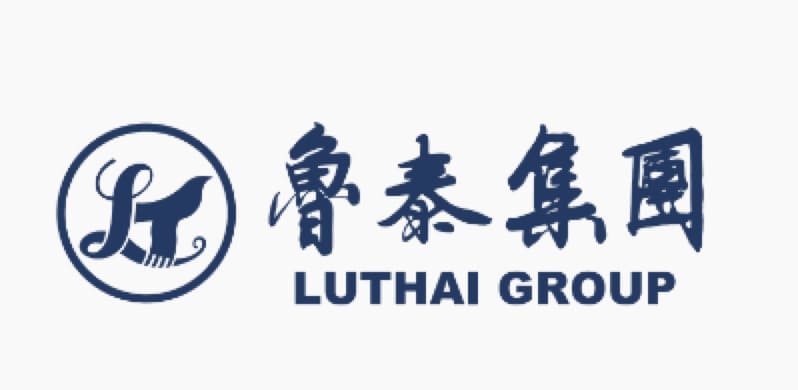
Based in Zibo, Lu Thai operates a fully integrated mill-to-garment chain and is renowned for high-quality yarn-dyed shirt fabrics, serving both domestic and international apparel brands.
Key Products
Premium yarn-dyed woven fabrics for shirts and blouses
Wrinkle-free eco-fabrics and four-way stretch textiles
Blended fabrics: cotton, silk, wool, and synthetics
Non-iron, digital-print, and stretch shirting materials
Garments: high-end shirts and finished apparel
Pros
Specialization in premium shirt fabrics and complete vertical integration
State-of-the-art equipment and strong R&D focus
Recognized for industry talent development and stable profitability
Aspect | Highlight |
|---|---|
Production Capacity | World’s largest high-grade yarn-dyed fabric producer |
R&D Focus | Wrinkle-free, stretch, eco, and protective fabrics |
Certifications | National high-tech, green design demonstration enterprise |
Market Reach | Exports to 60+ countries, strong global partnerships |
Cons
Product focus on shirting fabrics may limit diversification options
ROE (~5.2%) below historical average, suggesting moderate returns
Tip: Lu Thai’s dedication to high-quality and innovation makes them a reliable choice for brands seeking the best quality textile solutions for shirts and fashion.
7. Texhong Textile Group — Leading global cotton yarn producer
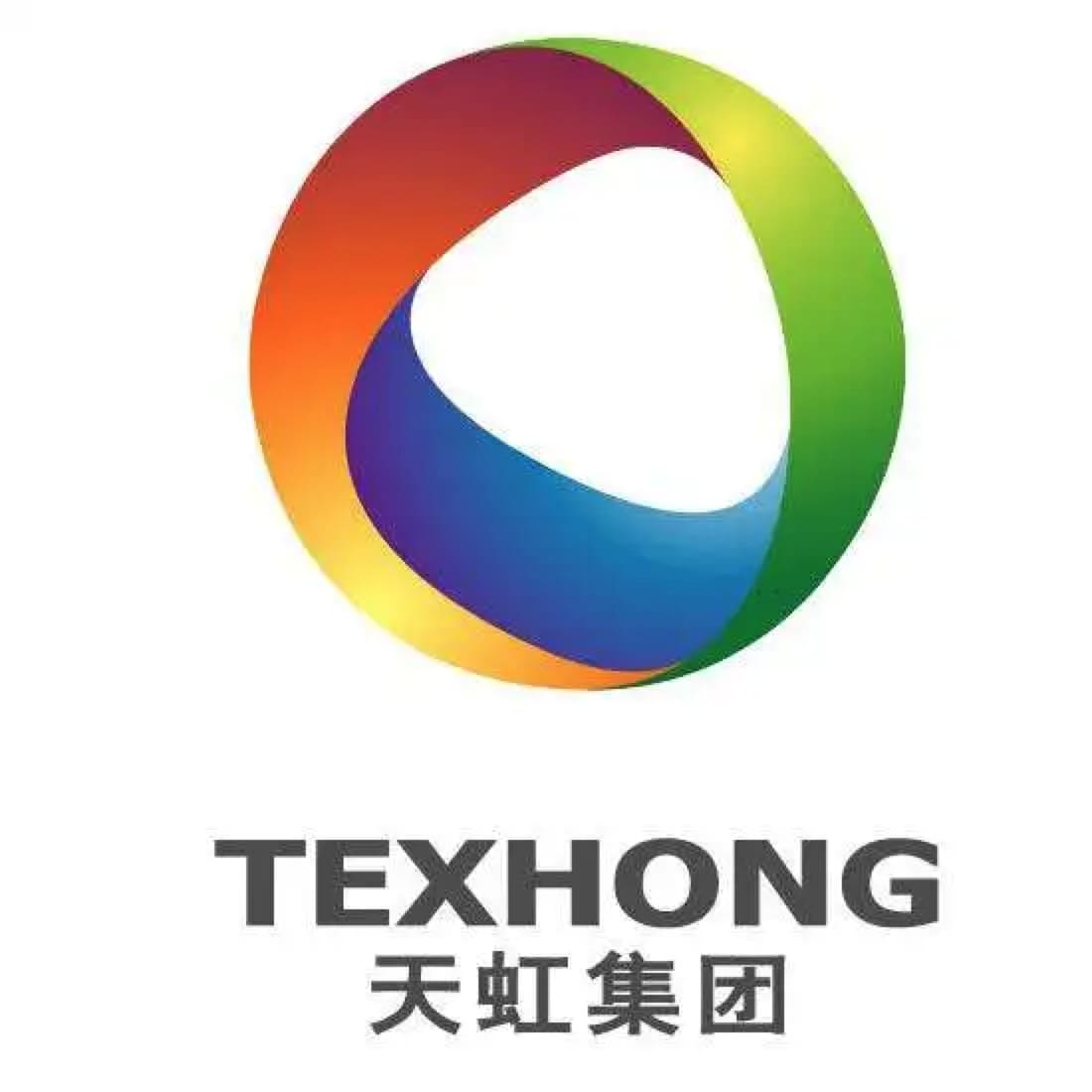
Texhong, founded in 1997 and listed in Hong Kong, is a major cotton textile manufacturer producing yarn, greige and finished fabrics, and garments, with international operations across Asia and the Americas.
Key Products
Cotton yarns for weaving and knitting
Gray cloth and dyed woven fabrics
Denim fabrics for apparel and fashion
Non-woven textiles for industrial use
Ready-to-cut garment fabrics
Pros
Vertically integrated across yarn, fabric, and garment units
Global footprint with operations in Vietnam, Cambodia, U.S., Mexico, etc.
Specialized in cotton textiles with comprehensive production services
Cons
Heavy focus on cotton may limit appeal for clients seeking synthetics or technical fabrics
As investment holding structure, decision-making may be slower due to multi-jurisdiction listings
Tip: Texhong’s strong numbers and global investments show why many brands trust them for high-quality textile products.
8. Shenghong Group — High-tech petrochemical‑textile integration powerhouse
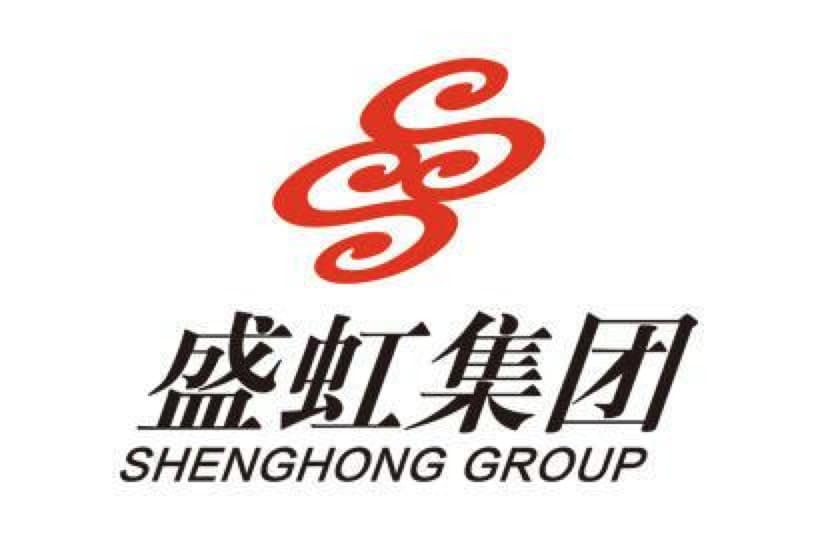
Founded in 1992 in Suzhou, Shenghong Group is a Fortune Global 500 high-tech industrial group that combines petrochemical production, new materials, and high-end textiles—particularly polyester and chemical fiber chain integration.
Key Products
Polyester filament yarns: POY, FDY, and staple fibers
Chemical fibers and new-material textiles, including carbon-capture polyester
Woven and knit fabrics made from polyester, nylon, and cotton blends
Technical textiles for sportswear, home textiles, and industrial uses
Petrochemical derivatives such as PTA and olefins
Pros
Fully integrated supply chain from petrochemicals to finished fabrics ensures stable quality and cost control
Strong focus on innovation, including CO₂-to-fiber technology and national award-winning R&D projects
Massive production scale supports large orders and global export needs
Advanced manufacturing facilities with automated systems and strict quality checks
Commitment to sustainability with investments in eco-friendly materials and processes
Cons
Main focus on industrial and technical textiles may not fit buyers looking for small, fashion-focused batches
Large corporate structure can make communication slower for new or smaller clients
Customization options may be limited compared to smaller, boutique factories
Tip: Shenghong Group’s ability to turn carbon emissions into new fibers puts them at the front of sustainable textile innovation.
9. Xinlan Textile Co., Ltd. — Diversified textiles including denim and home fabrics
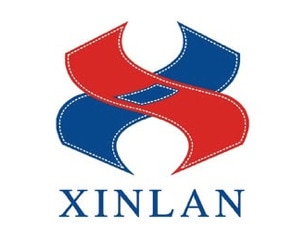
Zhejiang Xinlan, a mid-sized textile manufacturer, produces a wide range of fabrics—denim, fleece, dresswear, home textiles—and exports globally, while leveraging Jinhua’s supply chain infrastructure.
Key Products
Denim fabrics: stretch, specialty weaves, and classic styles
Fleece and brushed textiles for cozy apparel
Dress-suit fabrics and shirt materials for fashion brands
Home décor textiles: curtains, cushions, and blankets
Custom fabrics for unique projects
Pros
Wide product range covers both apparel and home textile needs
Fast delivery times, often within 7 days for standard orders
Verified quality control at every stage of production
Flexible customization for colors, patterns, and fabric types
Strong local supply chain support ensures steady material flow
Cons
Smaller production scale may not suit very large, bulk orders
Less global brand recognition compared to some bigger china fabric manufacturers
Limited presence in high-tech or specialty performance fabrics
Tip: Xinlan’s ability to handle both small and medium-sized orders makes them a favorite for brands testing new products or launching limited collections.
10. Kailong Textile Co., Ltd. — Flexible interlining & shell fabric specialist
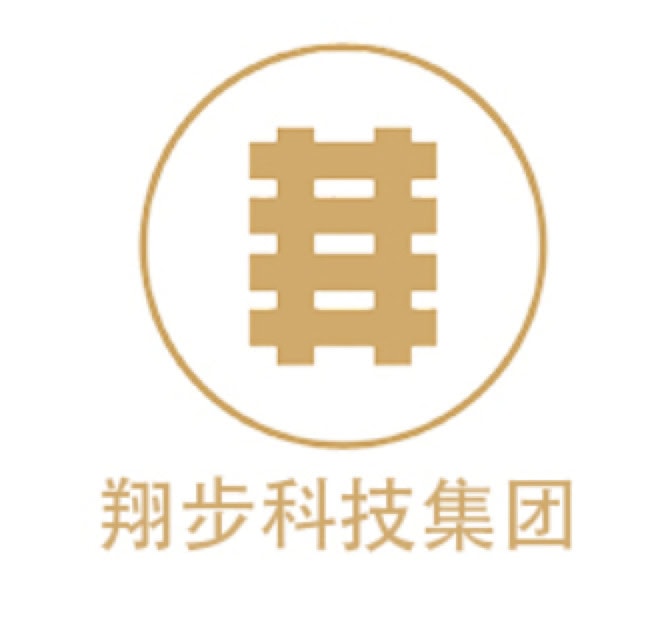
Beijing Kailong Yisheng (founded 1989), under Xiangbu Group, specializes in interlinings, pocketing, waistbands, linings, and shell fabrics through its Beijing, Hebei, and Suzhou units—serving global apparel brands.
Key Products
Interlinings for shirts, suits, and outerwear
Pocketing fabrics and waistbands
Facings and woven/non-woven garment accessories
Shell fabrics for jackets, uniforms, and workwear
Synthetic woven fabrics for outerwear and technical use
Pros
Highly flexible order sizes, with low minimum order quantities (MOQs)
Fast development cycles for new samples and custom requests
Global manufacturing network, including factories in China and Bangladesh
Wide range of garment accessories, making it easy to source everything in one place
Cons
Smaller production scale may not suit buyers needing ultra-high-volume orders
Focus on accessories and interlinings means fewer options for full fabric sourcing
Some specialty fabrics may require longer lead times for custom development
Tip: Kailong’s flexibility helps brands launch new products quickly without large upfront costs.
11. Youshun Textile Co., Ltd. — Stretch–fabric innovator
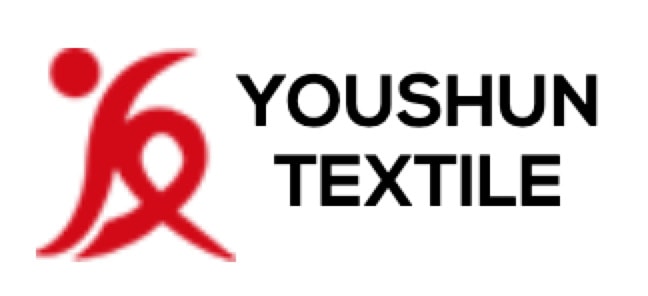
Wujiang Youshun is a specialist in two-way and mechanical four-way stretch fabrics, supplying polyester, poly-cotton, nylon and elastic knits, with in-house greige weaving and finishing.
Key Products
Polyester and poly-cotton stretch woven fabrics
Four-way mechanical stretch textiles for sportswear and athleisure
Nylon and polyester blends with special finishes
Technical stretch fabrics for outdoor and performance clothing
Custom-developed fabrics for unique brand needs
Pros
Specialization in high-performance stretch textiles—often hard to source elsewhere
Modern looms (Toyota air-jet, water-jet), in-house R&D and customization
Competitive pricing with direct-weaving-to-sale model
Cons
Narrow focus on stretch products may limit appeal for standard fabric lines
Likely smaller scale with limited global outreach
Tip: Youshun’s focus on stretch innovation means buyers get fabrics that meet the latest trends in comfort and performance.
12. Baite Textile Co., Ltd. — Camouflage and workwear specialist
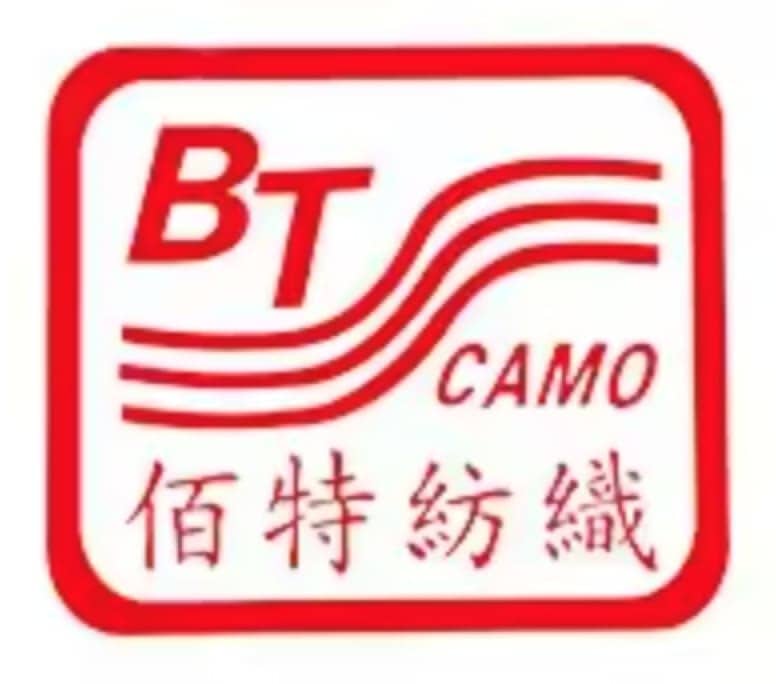
Shaoxing Baite has over a decade of specialization in camouflage and workwear textiles, serving military, police, and industrial markets globally from its Shaoxing base.
Key Products
Camouflage fabrics: printed, ripstop, and multi-terrain patterns
Polyester/wool and poly/cotton suitings for uniforms
Workwear fabrics with enhanced durability
Custom-printed textiles for military, police, and outdoor use
Pros
Deep expertise in military-grade and functional textiles
Competitive pricing from Shaoxing’s textile cluster
Flexible sampling and custom pattern development
Fast turnaround for standard orders
Strong quality control for uniform and workwear standards
Feature | Benefit for Buyers |
|---|---|
Custom Camouflage | Unique patterns for any project |
Ripstop Construction | Extra durability in tough settings |
Flexible Sampling | Easy to test before large orders |
Cons
Niche focus on uniforms and workwear limits options for fashion or home textiles
Minimum order quantities may apply, especially for custom prints
Product range centers on functional fabrics, not luxury or casual wear
Tip: Baite’s fabrics often meet strict requirements for colorfastness, tear strength, and weather resistance.
13. F&A Textile Co., Ltd. — DIY & craft‑oriented fabric wholesaler with ultra low MOQ
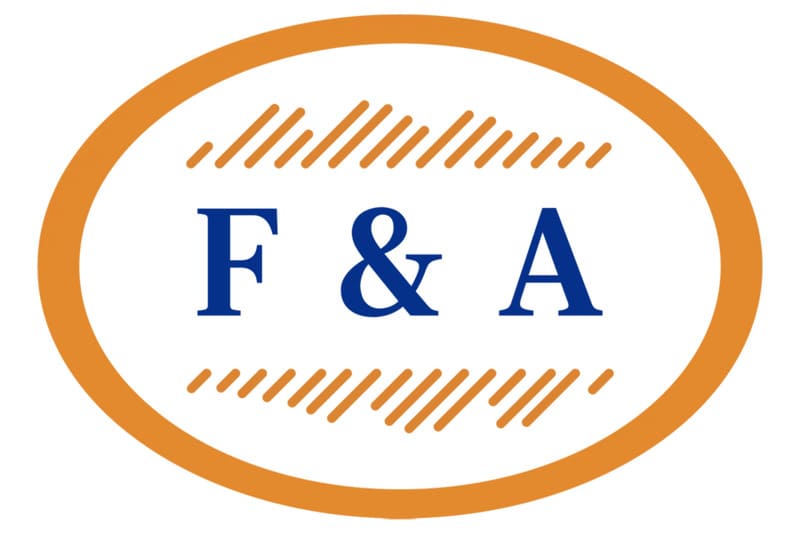
Established in 2013 in Qingdao, F&A Textile is a vertical, BSCI/BCI/OEKO‑TEX certified manufacturer focused on quilting, apparel, and home décor fabrics—offering rapid small‑batch customization with as little as 1 m MOQ.
Key Products
Custom and stock fabrics for quilting, apparel, and home décor
Woven and knit blends: cotton, spandex, nylon/cotton, viscose/spandex, bamboo
Printed and digital-print fabrics with vibrant patterns
Pre-cut bundles and fabric packs for crafters
Eco-friendly and certified materials (BCI, recycled cotton, OEKO-TEX, BSCI)
Pros
Ultra low minimum order quantity (MOQ) — as little as 1 meter per design
Perfect for designers, small businesses, and online stores needing small runs
Vertical integration with advanced looms and digital printing for fast turnaround
Wide selection of trendy prints and fabric types
Holds key certifications for sustainability and quality
Cons
Focuses on craft, apparel, and home niches — not ideal for industrial or technical textile buyers
Smaller scale may limit bulk capacity or raise per-unit costs for very large orders
Product range centers on creative and DIY fabrics, so options for basics or specialty performance textiles may be limited
Tip: F&A Textile’s low MOQ and ready-to-ship bundles help new brands test ideas without big upfront costs.
14. Shenda Co., Ltd. — Specialist in industrial and automotive textiles
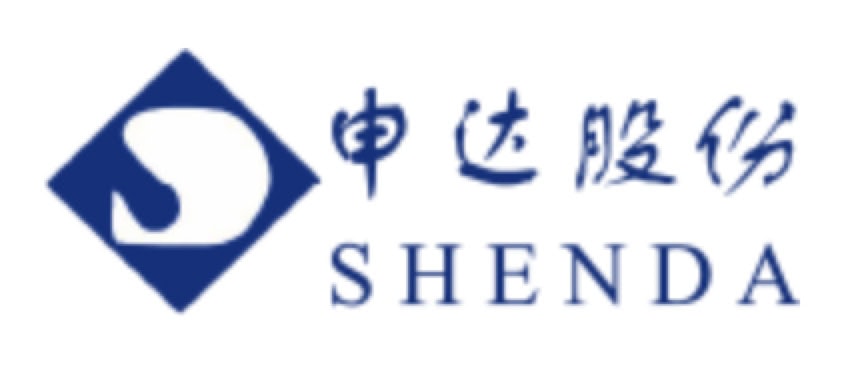
Shanghai Shenda, founded in 1986 and publicly listed (600626.SH), is a vertically integrated industrial textile firm known for automotive interior textiles, soft decoration materials, waterproof membranes, architectural fabrics, and biogas membranes.
Key Products
Automotive interior textiles: carpets, ceiling fabrics, seat belts, and trunk linings
Architectural membranes and waterproof barrier fabrics
Soft decorative textiles for vehicle and building interiors
Technical textiles for biogas structures and waterproofing
Industrial fabrics for construction and infrastructure projects
Pros
Large-scale integrated capacity with OEM trade and advanced R&D
Proven automotive-quality supply chain supplier (Volkswagen, GM, Chery)
Diverse industrial textile portfolio—waterproof membranes, inflatable materials, real estate assets
Cons
Niche focus on industrial and automotive markets—less suited for fashion fabrics
Publicly listed and cross‑sector business may complicate agile decision‑making
Tip: Shenda’s data framework and partnerships keep it a top China fabric supplier for industrial and automotive sectors.
15. Taihua New Material Co., Ltd. — High‑tech nylon functional fabrics
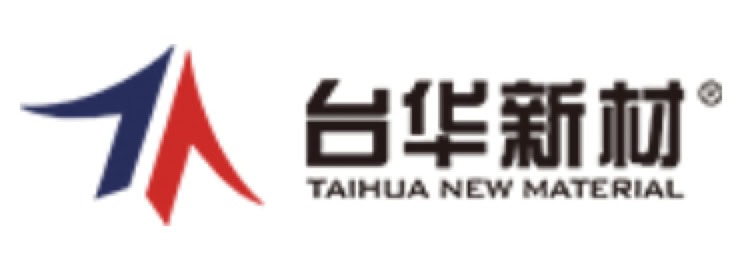
Zhejiang Taihua, founded in 2001 and listed on Shanghai (603055.SH), is a national “Torch Program” high-tech enterprise specializing in nylon filament and high-grade nylon fabrics (nylon 6/66), including eco-friendly and functional textiles.
Key Products
Nylon filament yarns (including 66-FDY)
Functional fabrics: antibacterial, moisture-wicking, and quick-dry
Dope-dyed eco-nylon fabrics that reduce water pollution
Technical textiles for sportswear, outdoor, military, and aerospace use
Specialty fabrics for protective and high-performance applications
Pros
National-level research and development center drives innovation in technical textiles
Large-scale vertical integration ensures stable supply and consistent quality
Strong focus on sustainability with liquid-colored fibers that cut wastewater
Wide range of applications, from sports and outdoor to military and aerospace
Advanced production lines support custom orders and new product development
Feature | Benefit for Buyers |
|---|---|
Eco-friendly Process | Lower environmental impact |
Technical Expertise | High-performance fabric solutions |
Customization | Tailored fabrics for unique needs |
Cons
Main focus on nylon means fewer options for cotton, silk, or blended fabrics
Premium technology and advanced features may lead to higher prices
Smaller buyers may find minimum order quantities higher than expected
Tip: Taihua’s dope-dyed nylon fabrics use less water and energy, making them a greener choice for eco-conscious brands.
16. Jianye Textile Group — Export‑oriented ladies’ fashion fabrics
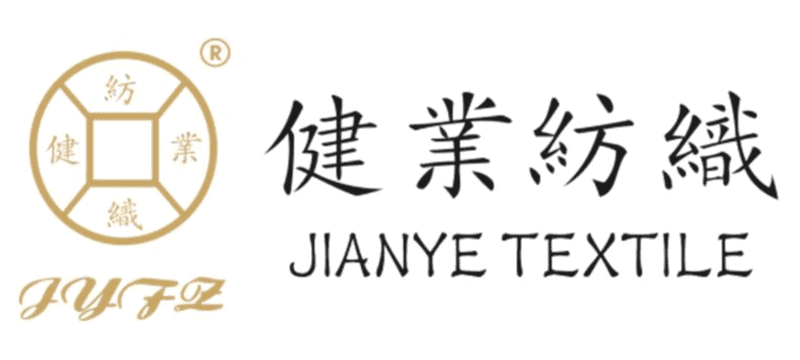
Guangdong Jianye, founded in 1992, is a major provider of fashion-forward women’s fabrics with advanced weaving, printing, dyeing, and broad export markets across Asia and beyond.
Key Products
Knit and woven fabrics for women’s dresses, blouses, and skirts
Printed, flocked, and patterned textiles for seasonal collections
Supportive dyed and printed fabrics for fashion-forward designs
Lightweight materials for spring and summer wear
Soft-touch and drapey fabrics for premium ladies’ garments
Pros
Advanced weaving, printing, and dyeing technology ensures vibrant colors and sharp patterns
Strong export network reaches Europe, North America, and Southeast Asia
Reliable quality control with ISO9001 certification
On-time delivery and responsive customer service
Flexible order sizes support both large brands and boutique labels
Advantage | Benefit for Buyers |
|---|---|
Trendy Designs | Stay ahead in women’s fashion |
Export Expertise | Smooth international shipping |
Quality Control | Fewer defects, happy customers |
Cons
Main focus on ladies’ fashion may limit options for men’s or children’s fabrics
Medium production scale could restrict capacity for very large, urgent orders
Customization options may require longer lead times during peak seasons
Tip: Jianye Textile Group offers a wide variety of prints and textures, making it easy for brands to create unique collections.
Yansourcing: Sourcing Fabrics in China
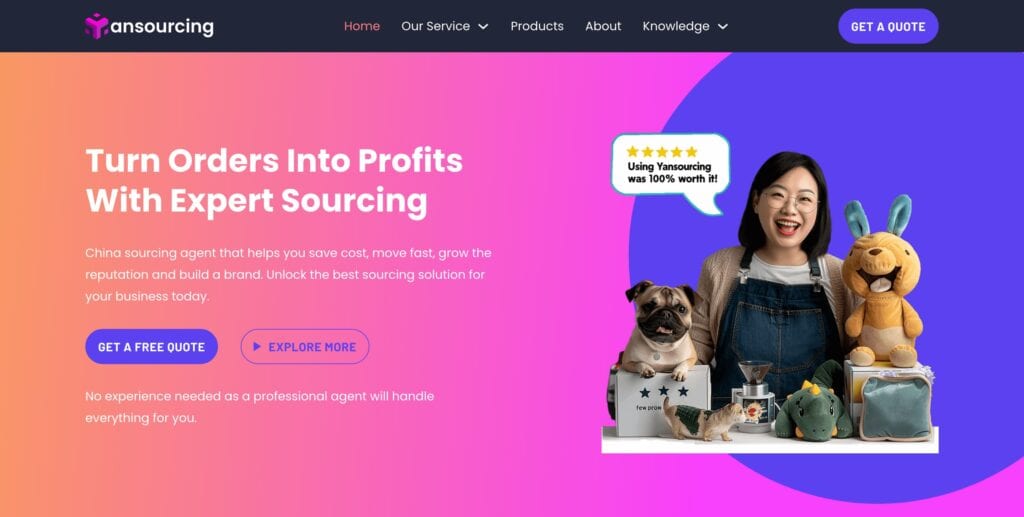
Finding the right china fabric manufacturers can feel overwhelming. Many buyers worry about quality, reliable supplier connections, and the risks of purchasing textiles from china. Yansourcing helps businesses solve these problems by connecting them with trusted textile suppliers in china.
About Yansourcing
Yansourcing stands out as a leading sourcing partner for anyone looking to work with fabric manufacturers in china.
With over a decade of experience, their team knows the textile market inside and out. They have built strong relationships with top supplier networks, making it easier for clients to find the right factory for any textile need.
Yansourcing’s experts guide clients through every step, from supplier selection to final delivery. Their deep knowledge of china’s textile industry helps brands avoid common pitfalls and focus on growth.
Advantages
Yansourcing delivers real value for brands that want quality and reliability from fabric manufacturers in china. Their strong supplier network, strict quality control, and flexible order sizes help clients succeed in a fast-moving market.
The table below highlights what sets Yansourcing apart:
Success Metric | Supporting Details |
|---|---|
Experience | Over 10 years of sourcing experience in China, handling market trends and challenges, making sourcing easier and less stressful. |
Supplier Connections | Strong, trusted relationships with reliable suppliers built over many years, ensuring high-quality products. |
Quality Control | Careful product inspections and strict factory checks to avoid defects and ensure compliance with market rules. |
Order Flexibility | Clear pricing with no hidden costs and flexible minimum order sizes to accommodate different business scales. |
End-to-End Support | Full support from sourcing to shipping, including production updates and multiple shipping options (air, sea, rail). |
Client Benefits | Services save time and money, allowing clients to focus on business growth. |
Yansourcing helps brands unlock the full potential of fabric manufacturers in china. Their focus on quality, trusted supplier relationships, and sustainable fabric sourcing gives clients a real edge in the global textile market.
Conclusion
Finding the right fabric supplier in China can be overwhelming, especially with varying MOQs, specializations, and scales. This curated list of the top 16 China fabric manufacturers offers a comprehensive snapshot of leading players—from vertically integrated giants like Weiqiao and Hengli to niche innovators like Youshun and F&A Textile.
Whether you’re sourcing technical textiles, fashion fabrics, eco-friendly materials, or low-MOQ options, this guide helps streamline your decision-making process by aligning company strengths with your specific needs.
Ready to source high-quality fabrics with confidence? Try the top 16 China Fabric Manufacturers today—or better yet, visit Yansourcing to simplify your sourcing journey with expert guidance and vetted suppliers.
FAQ
1. What certifications should buyers look for when choosing china fabric manufacturers?
Buyers should check for certifications like ISO 9001, OEKO-TEX, and GRS. These show that the factory meets quality and safety standards. Certifications help buyers trust that the company follows good practices and delivers safe, reliable fabrics.
2. How can buyers ensure fabric quality before placing a large order?
Buyers can ask for fabric samples or swatches before ordering. Many companies offer small samples for testing. Checking samples helps buyers see the color, texture, and quality. Some buyers also use third-party inspection services for extra peace of mind.
3. What is the typical minimum order quantity (MOQ) for fabric manufacturers in China?
Most china fabric manufacturers set MOQs between 500 and 1,000 meters per design. Some companies offer lower MOQs for special projects or new customers. Always ask the supplier about their minimum order size before starting.
4. How long does it take to receive fabric orders from China?
Production times usually range from 2 to 6 weeks, depending on the fabric type and order size. Shipping adds extra time. Air freight is faster but costs more, while sea freight takes longer but saves money.
5. Can buyers request custom colors or patterns from Chinese fabric factories?
Yes, many fabric manufacturers in China offer custom colors, prints, and finishes. Buyers should share clear design files or color samples. Factories often provide digital proofs or strike-offs for approval before full production begins.
